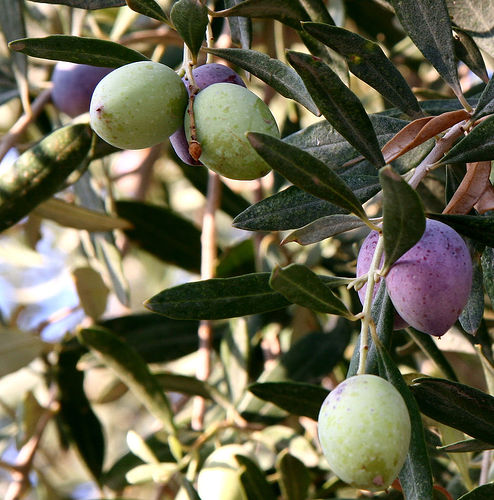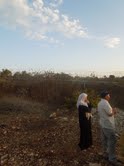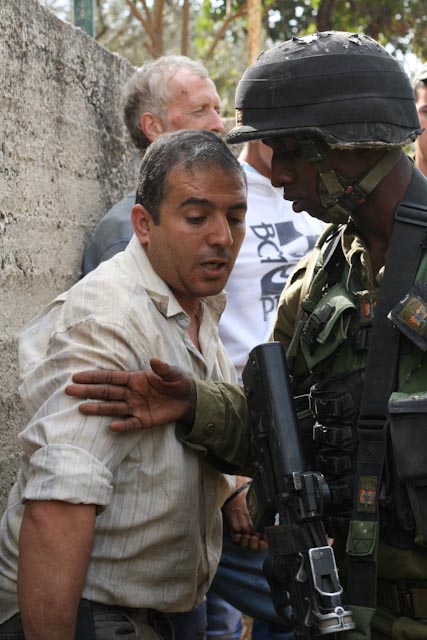Tag: Olive harvest
-
Resist the land grab: donate a tree
29 January 2013 | International Solidarity Movement, Nablus, Occupied Palestine For more than a decade the International Solidarity Movement (ISM) has supported Palestinians during the olive harvest, a task which continues to be challenging. We regularly support farmers by accompanying them to fields and planting olive trees in areas of high risk of settler attacks…
-
Picking olives in a cage
Journal by Ellie Marton 25 October 2012 | International Solidarity Movement, West Bank I spent Tuesday inside a cage. Not my usual way to spend a sunny Tuesday – but for the Palestinian farmers I was with, this is routine. This is because their land happens to be near the illegal Israeli settlement of…
-
3 Arrested as Palestinians attacked by settlers and soldiers in Tel Rumeida
By Vicky Blackwell and Elyana Belle Photographs by Vicky Blackwell 22 October 2012 | International Solidarity Movement, West Bank VIDEO from Youth Against Settlements: UPDATE: 10.30pm – All 3 men have now been released without charge. Today, a group of settlers from the illegal settlement in Tel Rumeida arrived at Hashem Azzeh’s olive grove next to…



